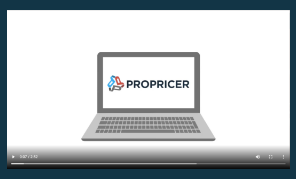Once you’ve submitted your well-crafted and technically accurate proposal to a government Agency, … are you done? Actually, your work may have just begun. Enter the Defense Contract Audit Agency (DCAA). The DCAA may assess your contract’s compliance with Federal Acquisition Regulations (FAR), which is the typical way the federal government purchases from Contractors.
To be awarded or keep a government contract, the DCAA could conduct an extensive audit of your business, particularly your accounting methods and your financial ability to fulfill the contract.
Here are a few tips to help you prepare for the process:
-
Understand the types of DCAA audits
- Pre-award audit. This type of audit takes place before you receive a contract award. It could include an audit of your proposal pricing, a look at your forward-pricing rates, or a survey of your accountancy methods.
- Post-award audit. This audit takes place after you’re awarded a contract. A post-award audit could include an audit of costs incurred under the contract, which would drive your final bid up; a review of compliance with the Truth in Negotiations Act (TINA); a study of your compliance against Cost Accounting Standards (CAS); or an audit of claims made against you by other contractors. What’s the main objective of a post-award audit? To determine if your negotiated contract price increased by a significant amount because you may not have initially submitted accurate, complete, and current cost or pricing data.
- Contractor business system audit. This is an audit of your internal process and could include a review of your major business systems, such as those dealing with accounting, estimating, billing, purchasing, timekeeping and inventory management.
- Criteria for adequate contract pricing proposals. While it’s not an audit, this checklist weighs your proposal against a list of established cost criteria. It’s all about determining your proposal’s pricing reasonableness, including certified cost or pricing data.
-
Know the DCAA’s requirements
- Ensure you submit your proposal according to the appropriate contract type (which will determine the type of audit you may be subject to):
-
- Time and Materials
- Cost Reimbursable
- Fixed Price
- Be meticulous about documenting labor expense & time tracking.
- Make sure you’re using an adequate accounting system, which includes centralized data, and that has the ability to track or allow direct costs, show indirect costs, and isolate unallowable expenses.
- Be ready to either pass or fail an audit. There’s no room for negotiation, unfortunately. Failing a DCAA audit can block you from submitting proposals for other contracts or performing as a sub-contractor or partner.
- If you use sub-contractors within your project, those subs will likely be subject to the same audit rules. Their pass/fail grade can have an impact on your entire proposal. So, you should routinely vet a sub-contractor’s capabilities before hiring.
- Not fully understanding the ongoing requirements of DCAA can potentially put your business at financial risk. You must be able to shoulder the ongoing administrative costs of an audit, for its duration (person-hours to manage, etc.)
-
Learn about a few tools & best practices
Here’s what you can rely on to prepare for an audit:
- Check to see if you’re subject to audit under a specific contract provision or as determined by FAR. Review your contracts and contact an external accountant or a Government Contracting Consultant if you’re unsure whether a specific contract will likely be audited.
- Visit the DCAA’s website and review their audit guidelines. Study the information with your internal management and accounting teams to make sure you’re ready, should an audit come from on high. It’s a good idea to ask an External Auditing Consultant for advice as you review the guidelines. These professionals are familiar with audit procedures and can give you valuable insight into what a DCAA audit is trying to accomplish.
- Ask for a list of items that could be requested by an auditor and prepare in advance for their inquiry. (This usually involves pulling together requested work papers). Index audit work papers in numerical order to coincide with the items requested by the auditor prior to fieldwork. Just to be sure, have an independent party review your documentation to ensure your information is pulled together in a logical format—and that it’s easy for the DCAA to dissect and examine.
- Assign a person within your business to serve as the point of contact during the audit. This should be someone familiar with overall business operations and who understands Government Contracts and regulatory requirements. Be sure they maintain open communication with the auditor, can anticipate why an auditor is requesting certain data during fieldwork, and knows where to look for advice if unsure how to respond to a request.
- Keep copies of all documents you provide the DCAA auditor & all audit paperwork. This will save your life if docs are lost or questions arise after the audit. Having a system that stores every piece of data in a central location can be a tremendous help when trying to report on current and historical cost and pricing data.
The key to success in a Contracting environment? Run your business in a way that prepares you for a DCAA audit from the start of every Contract proposal. Take a proactive approach and hire people that are intimate with your business, your industry, its regulatory requirements, and most importantly, the contract process.
ProPricer contract proposal preparation and review software can help you continuously anticipate a DCAA audit, by automatically sorting and presenting your proposals’ financials in an audit-favorable format. Book a short online demo here.





